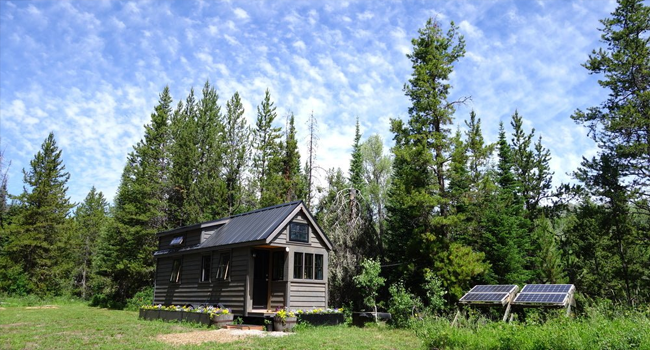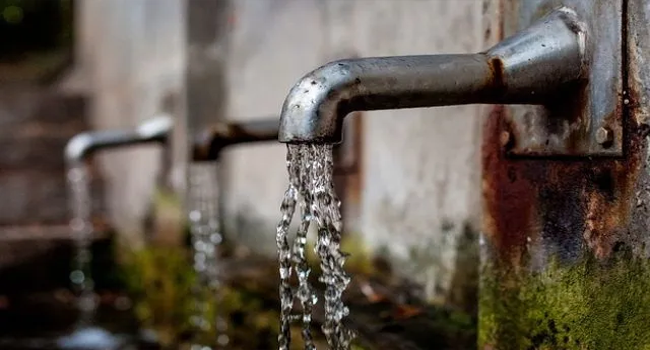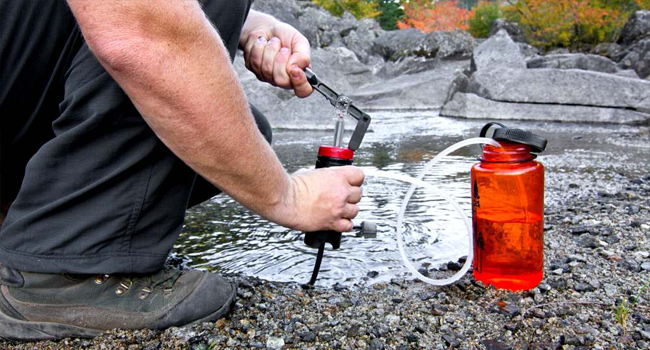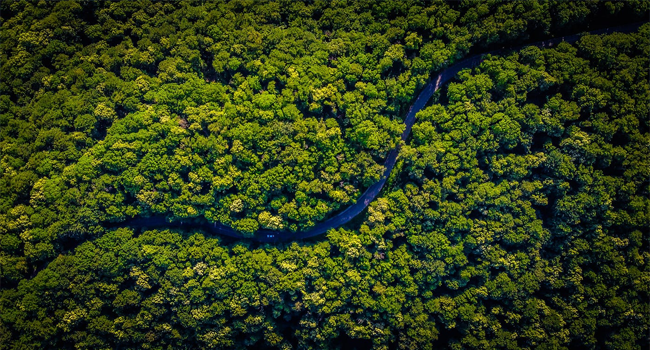
Maximizing self-sufficiency is not just a trend; it’s a manner of life that empowers individuals to live extra sustainably, decreasing their reliance on external assets and embracing a greater unbiased lifestyle. In the hunt for off-grid living, developing critical abilities becomes paramount. Here are the pinnacle 10 off-grid capabilities for sustainable residing.
Homesteading and Gardening:
Homesteading is at the heart of self-sufficiency. Knowing how to cultivate your food via gardening and farming is a fundamental skill. Learn approximately crop rotation, partner planting, and organic gardening strategies to maximize yields without relying on chemical inputs. Understanding your neighborhood climate and soil conditions is critical for a successful homesteading.
Water Harvesting and Purification:
Water is life, and stale-grid living needs a sustainable water supply. Explore rainwater harvesting structures, building ponds, and digging wells. Additionally, knowledge of water purification techniques ensures a secure and non-stop water supply. Knowledge of herbal filtration strategies, including charcoal and sand usage, may be beneficial.
Renewable Energy Systems:
Off-grid living requires a dependable source of power. Invest time studying approximately renewable energy structures like solar panels, wind generators, and hydropower. Understanding how to install and keep those structures will provide a regular and eco-friendly electricity supply, decreasing dependence on the grid.
Wilderness Survival Skills:
Off-grid residing often entails being toward nature. Learning wasteland survival capabilities, including fireplace-making, safe haven-constructing, and foraging, complements your ability to thrive in herbal environments. Acquiring those abilities ensures your protection and allows you to stay harmoniously with your surroundings.
Animal Husbandry:
Raising cattle is a key thing of self-sufficiency. Knowledge of animal husbandry, consisting of being concerned for chickens, goats, or different livestock, gives a sustainable supply of meat, dairy, and eggs. Understanding the wishes of your animals and imposing moral and sustainable practices is vital for lengthy-term fulfillment.
Food Preservation Techniques:
Knowing how to keep your harvest is critical for maintaining a year-spherical food delivery. Explore techniques together with canning, dehydrating, fermenting, and root cellaring. These techniques help increase the shelf life of your produce and reduce waste, ensuring a consistent meal supply at some stage in leaner seasons.
Building and Construction Skills:
Off-grid dwelling frequently includes constructing structures from scratch. Acquiring primary carpentry, masonry, and creation skills permits you to create your shelter, furniture, and crucial infrastructure. Additionally, expertise in green construction practices can contribute to a more sustainable lifestyle.
Basic Mechanical and Plumbing Knowledge:
Being capable of troubleshooting and restoring basic mechanical and plumbing problems is crucial for keeping an off-grid domicile. Learn about protecting water pumps, mills, and important gear. This know-how ensures you can deal with issues immediately without needing external help.
Herbal Medicine and Natural Remedies:
Access to traditional medicine can be limited in far-off locations. Learning approximately natural therapies and natural treatments equips you with the talent to deal with unusual health problems. Understand the residences of local plants and herbs for medicinal purposes, permitting you to take care of your well-being off the grid.
Community Building and Networking:
Off-grid living doesn’t suggest entire isolation. Building a supportive community of like-minded individuals fosters collaborative surroundings. Sharing competencies, sources, and information with neighbors or fellow off-grinders complements overall self-sufficiency. Networking can also be treasured for alternate and barter systems, further lowering dependence on outside markets.
Living off the grid is a transformative adventure that calls for adaptability, resilience, and a deep connection to the herbal international. Consider elements that could enrich your off-grid enjoyment as you delve into self-sufficiency.
Waste Management and Recycling:
Sustainable living is going hand in hand with accountable waste management. Embrace recycling and upcycling practices to decrease your environmental effects. By reducing waste, you contribute to a cleanser and more healthy off-grid environment.
Permaculture Design:
Permaculture concepts offer a holistic approach to designing and keeping a self-sufficient environment. Understand the interconnectedness of flora, animals, and systems within your homestead. Implement permaculture design to create sustainable and regenerative surroundings where every detail serves multiple capabilities, selling performance and resilience.
Navigation and Orientation:
Living off-grid regularly means being surrounded by widespread landscapes. Developing navigation skills using maps, compasses, and celestial cues guarantees you can discover and navigate your surroundings appropriately. Whether locating resources or exploring a barren region, knowing how to navigate without relying on electronic devices is a precious talent.
Alternative Transportation:
Reduce your dependence on conventional automobiles by exploring alternative transportation methods. Consider bicycles, electric bikes, or even animal-powered alternatives for quick-distance travel. Not handiest does this decrease your carbon footprint; however, but it also fosters a better connection in your instantaneous environment.
Communication Skills:
Effective verbal exchange is important, particularly in remote regions. Learn basic radio operation and verbal exchange strategies. Having the capacity to stay in contact with buddies, emergency services, or fellow off-grinders complements safety and gives a community experience even in isolation.
Financial Management:
Off-grid residing often involves a shift in monetary dynamics. Develop powerful economic management talents to price range for ongoing prices, plan for contingencies, and invest in long-term sustainability initiatives. Understanding how to make knowledgeable monetary selections ensures the viability and longevity of your off-grid lifestyle.
Weather Forecasting:
Being attuned to climate styles is crucial for planning and preparedness. Learn how to interpret cloud formations, observe animal conduct, and use basic meteorological equipment.
Canning and Food Preservation Mastery:
Delve deeper into the artwork of meal maintenance using getting to know superior techniques like strain canning and pickling. These techniques assist you in saving a greater variety of foods, retaining the flavors and nutritional fee. Building a various and well-preserved food supply contributes to the resilience of your off-grid lifestyle.
Energy-efficient Appliance Repair:
In an off-grid setting, strength conservation is paramount. Learn how to hold and repair strength-green appliances to decrease power intake. This consists of knowledge of the internal workings of fridges, stoves, and important household objects to ensure their toughness and efficiency.
Continuous Learning and Adaptability:
The off-grid lifestyle is dynamic and ever-converting. Embrace a mindset of non-stop getting-to-know and adaptability. Stay curious approximately new technologies, sustainable practices, and improvements in off-grid residing. You can constantly enhance and optimize your self-sufficiency journey by being open to innovation.
Remember, the direction to off-grid self-sufficiency is a non-public and evolving journey. Each ability you obtain contributes to a resilient, sustainable, and pleasing way of life. Embrace the challenges, rejoice in the victories, and, most significantly, get pleasure from the precise joy that incorporates dwelling harmoniously with nature while maximizing your self-sufficiency.
Alternative Cooking Methods:
Diversify your cooking skills by exploring opportunities not relying on conventional kitchen appliances. Learn how to cook dinner using sun ovens, rocket stoves, or open-fireplace methods. Mastering diverse cooking techniques ensures that you can assemble meals no matter the supply of power or gasoline.
Handcrafting and Artisanal Skills:
Embrace artisanal competencies, which include pottery, weaving, or woodworking. These crafts no longer best contribute to the aesthetics of your off-grid home but also offer realistic answers for growing gear, utensils, and ornamental objects. Engaging in handcrafting enhances your self-sufficiency and creativity.
Seed Saving and Heirloom Varieties:
Preserve biodiversity and maintain a self-maintaining lawn via studying the artwork of seed saving. Understand the importance of heirloom plant types and how to propagate and preserve them. This talent now not simplest ensures a diverse and resilient garden but also fosters a deeper connection to agriculture’s cultural and historical factors.
Wild Edible and Medicinal Plant Identification:
Expand your foraging competencies by learning how to pick out wild fit to be eaten and medicinal plant life in your location. This know-how now provides extra food sources and natural remedies for unusual illnesses. Building information on the neighborhood plants enhances your self-sufficiency and connection to the surroundings.
Hunting and Fishing:
For the ones living in areas with ample flora and fauna, obtaining looking and fishing abilities is treasured for supplementing your protein intake. Understand moral hunting practices, fishing techniques, recreation, and fish processing. Balancing these talents with sustainable practices ensures an accountable method of acquiring animal merchandise.
Educational Outreach:
Share your know-how and studies with others who are interested in off-grid living. Consider participating in academic outreach packages, workshops, or online systems to contribute to the developing community of self-enough people. By sharing insights, you empower others and foster a sense of collective studying and assistance.
Natural Building Materials:
Explore using herbal and sustainable building materials, including cob, straw bale, or rammed earth. Understanding those substances’ homes and construction methods permits you to create long-lasting, electricity-efficient structures. Natural building practices align with the concepts of off-grid dwellings, minimizing the environmental impact of construction.
Community Resilience Planning:
Take a proactive approach to community resilience by participating in or leading tasks on collective preparedness. Collaborate with friends to increase emergency plans and percentage assets and establish community gardens or co-op packages. Strengthening the resilience of the complete network complements the general achievement of off-grid residing.
Conclusion: Maximizing self-sufficiency via off-grid living includes numerous capabilities, from agricultural practices to construction and network construction. Embracing these talents now not handiest ensures a sustainable and independent way of life; however, it contributes to a more resilient and environmentally aware global community. As you embark on this adventure, recollect that the pursuit of self-sufficiency is a non-stop learning technique, and each skill received brings you one step towards an extra sustainable and pleasant manner of life.






